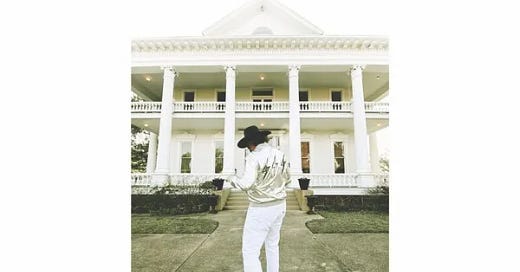EVERY GENRE PROJECT - February 8 - Bro-Country
Genre of the Day - Bro-Country
Album of the Day - Country Coming Down by Paul Cauthen
Perhaps the most important function that writing this column serves is exposing to me all the dimensions of music, and reaffirming my belief that it is the most all-encompassing form of art and by far my favorite, the thing that gives me meaning and allows me to have faith in living. Counterintuitively, that’s a lot of dramatics to note that music can also be simply levity, to take our minds off of heavy loads. And today, that heaviness is not lost on me. I am grateful, thus, that musically a little bit of levity floated my way.
With the birth of the digital download age and the sonic transformation of American pop that took place in the late 2000s, seeing Europop influences and EDM take the mainstream by storm and fundamentally altering the landscape of music, all mainstream genres had to reconfigure, readapt, and transform. It’s perhaps most evident in R&B, speaking as a fan, such as the transformation from Mariah Carey’s 2005 “The Emancipation of Mimi” and its heavily ‘70s, organic-soul overtones to 2008’s “E=MC2” with a much heavier synthy, electronic sound, or Usher’s pivot from the king of pop-soul to a king of the clubs. Country could not escape the transformation, either, resulting in perhaps the most polarizing brand of country to date–bro-country. In white liberal, urban America, there’s a wide swathe of people who, upon being asked what music they listen to, reply “Everything! Except country,” with a humorous scoff. Close minded? Certainly. Is bro country perhaps a little bit to blame? I argue to a certain extent yes.
Bro-country is synonymous for far too many people with country as a whole, but it’s understandable as it dominated the genre throughout the 2010s and around its edges. It’s spearheaded by artists like Florida Georgia Line, Luke Bryan, Jason Aldean, and Sam Hunt. Unabashedly masculine, party-focused, and taking cues from pop such as autotune and anthemic choruses, bro-country generally leans out of traditional country’s lyrical sentimentality and notion of sonic authenticity and eschews them for simplicity. Bro-country has achieved massive success but also definitely a certain notoriety among my generation—its style is recognizable enough to the point where playful takes flipping its script such as Dixon Dallas’ unhinged sex romp tunes have become instantly viral on TikTok.
I’ll be the first to say this album was just pure fun. Paul Cauthen comes from a real country background, a fifth-generation Texan hailing from the state’s eastern reaches. Like fellow Texan Kacey Musgraves, though, Cauthen’s take on country is executed with both a love for the genre and its importance and a tongue-in-cheek awareness of its excesses. With a baritone roar, he nods to his authenticity in a genre obsessed with integrity on the bluntly-named opener “Country As Fuck”—“I go to Piggly Wiggly / Call out on my CB / Steal a VCR n jimmy-rig it to my TV” while poking fun at the self-ascribed grandiosity across the genre, declaring “You ain't country enough / Make my own definition / Beat the system / 'Bout to start a new religion / Call it Country / Country as Fuck.” His voice has both the smoothness of a classic country crooner and the rough-around-the-edges grit of the most effective male country vocalists. Over ripping guitar, he indulges in some ironic boasting on “Country Clubbin’” but knows when the yearning of traditional country is a more momentarily suitable endeavor such as on the ode to the country “Country Coming Down.” It’s a thoughtfully funny but never sneering or overly self-serious take on a polarizing genre. I do declare: let this bro-country into your heart and have a little boot-stompin’ fun.




